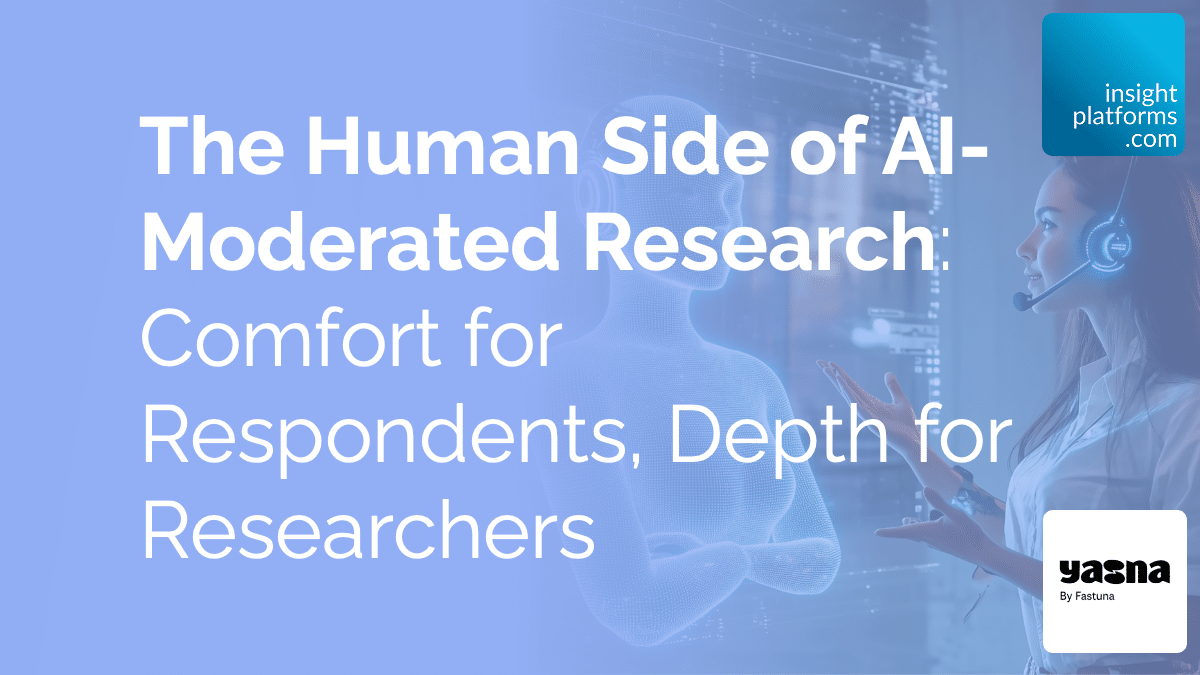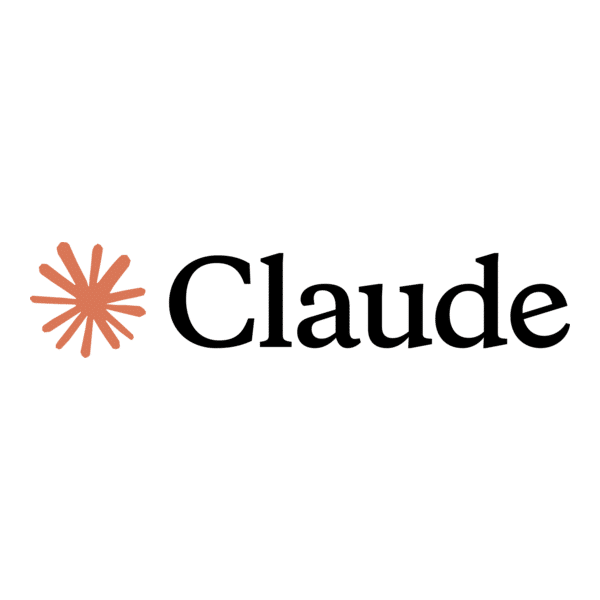
The Human Side of AI-Moderated Research: Comfort for Respondents, Depth for Researchers
- article
- AI
- Conversational AI
- Generative AI
- AI Moderation
Respondent Satisfaction: A New Kind of Interaction
When asked about their experience, the vast majority of respondents willingly engage in AI-moderated interviews. Participation rates are high, at least for us at yasna.ai, and satisfaction is even higher: recent statistics show an average score of 4.3 out of 5, with 86% of respondents reporting a positive experience. Respondents value that AI moderation is not overly technical, and at the same time, creates a space where they feel respected and free from judgment.
For professionals accustomed to structured surveys, such as lawyers or other B2B audiences, this interaction is a refreshing change. Unlike traditional forms where people tick boxes or write minimal answers, AI-moderated conversations feel more natural, like a messenger chat, which sparks curiosity and encourages more thoughtful, authentic responses.
Why AI Moderation Feels Human-Like
One of the key advantages of AI moderation is the ability to establish rapport. The AI responds empathetically to what respondents write, using expressions like “That’s interesting” or “I’m so sorry to hear that,” making conversations feel connected rather than mechanical. Unlike some quantitative surveys where answers are brief and uninformative, AI moderation encourages respondents to elaborate, think critically, and share experiences they might not disclose to a human moderator.
Stay up to date
Subscribe to receive the Research Tools Radar and essential email updates from Insight Platforms.
Your email subscriptions are subject to the Insight Platforms Site Terms and Privacy Policy.
Engagement Across Demographics and Cultures
Engagement levels can vary by age, technology comfort, and culture. Younger respondents or those familiar with messenger platforms often prefer AI moderation, while older participants may need more guidance. Across countries, cultural differences influence communication style: some regions embrace human-to-AIinteraction with enthusiasm, while others are more reserved.
Despite these differences, AI moderation consistently produces meaningful engagement, regardless of location.
It is important to note that we are working with panel respondents, who are generally comfortable with technology. However, what truly resonates with most participants is the interaction format itself—since it feels familiar and natural, much like their everyday conversations in messaging apps.
On a broader level, it is clear that younger audiences tend to engage more openly and dynamically in chat-based formats compared to older generations. At the same time, the approach proves appealing across demographics: it is both novel and easy to grasp, as it mirrors the experience of their favorite messengers.
Focus, Attention, and the Value of Shorter Sessions
Attention naturally diminishes in longer interviews. Data shows that messenger-style interview sessions exceeding 20 minutes often lead to disengagement, whether moderated by AI or a human. Keeping interviews concise and engaging ensures that respondents remain focused, provide thoughtful answers, and enjoy the experience. This makes small focus studies particularly effective for capturing high-quality insights quickly.
Technically, interviews can run longer, and respondents may pause during the process. Yet, in practice, we find that this approach works best for bite-sized tasks.
Probing, Context, and Depth
AI moderators like Yasna are capable of thoughtful probing. Follow-up questions encourage respondents to reflect and expand on their answers, replicating some benefits of live moderation. Over hundreds of interviews, it’s clear that while not all participants are equally engaged, many willingly share emotions and insights that may not surface in traditional methods.
Of course, not every interview yields highly detailed answers. However, at scale this is balanced out: a wider range of opinions is captured, important nuances emerge, and the findings can be validated. This represents a different approach—yes, it’s not the traditional, lengthy in-depth interviews conducted by a human moderator—but AI can still deliver meaningful depth. In fact, when it comes to hard-to-reach audiences or sensitive topics, AI may even have an advantage, as respondents are often more willing to open up.
AI’s ability to maintain context throughout the interview further reduces repetitive or awkward questions, enhancing the overall experience. For example, an AI moderator can be provided with information about the target audience, the specifics of the topic, and preferred wording, all of which it will take into account during the conversation.
Conclusion: A Unique Advantage for Researchers
AI-moderated research provides a unique combination of comfort, engagement, and quality. It can be an exceptionally effective and reliable assistant, especially when guided by human expertise.
Respondents feel respected and at ease, which encourages openness and honesty. This approach produces richer insights than traditional quantitative surveys and complements human moderation in qualitative research. For researchers seeking high-quality, reliable responses at scale, AI-powered tools are worth trying. This approach becomes particularly powerful and valuable when research needs to cover multiple countries and cultures, while remaining fast and cost-efficient.






